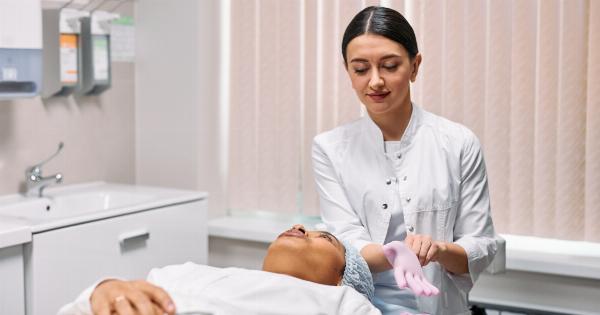Vaginal itching can be an uncomfortable and irritating experience for women. It can be caused by a variety of factors, including infections and other medical conditions.
While fungal infections are a common cause of vaginal itching, there are also several non-fungal causes that can result in this uncomfortable symptom. In this article, we will discuss five non-fungal causes of vaginal itching and what you can do to relieve symptoms.
1. Bacterial Vaginosis
Bacterial vaginosis (BV) is a common infection that occurs when the natural balance of bacteria in the vagina is disrupted.
While BV is not considered a sexually transmitted infection, it can occur after sexual contact with a new partner or multiple partners.
BV symptoms include a foul-smelling discharge, itching, and burning sensation during urination. Treatment for bacterial vaginosis typically involves prescription antibiotics, such as metronidazole or clindamycin.
2. Contact Dermatitis
Contact dermatitis is a type of skin rash that occurs when the skin comes into contact with a substance that irritates it. This can include soaps, feminine hygiene products, or laundry detergents.
If you begin experiencing itching, redness, or swelling after using a new product, it may be a sign of contact dermatitis.
Treatment for contact dermatitis may involve avoiding the irritant, using anti-inflammatory creams, or taking oral antihistamines to reduce symptoms.
If the rash persists or becomes more severe, it is essential to consult with a healthcare professional.
3. Psoriasis
Psoriasis is a chronic skin condition that causes flaking, scaling, and redness of the skin. While it most commonly affects the scalp, elbows, and knees, it can also occur in the genital region, leading to vaginal itching.
Treatment for psoriasis is typically managed with topical creams, light therapy, or prescription medications. Additionally, taking steps to reduce stress and maintain a healthy lifestyle can help manage symptoms of psoriasis.
4. Eczema
Eczema is a chronic inflammatory skin condition that can cause itchiness, redness, and scaling of the skin. While it most commonly affects the arms and legs, it can also occur in the genital region and cause vaginal itching.
Eczema can be exacerbated by scratching, which can lead to further irritation and discomfort.
Treatment for eczema typically involves avoiding triggers, using topical steroids or other creams to reduce inflammation, and taking oral antihistamines or other medications to manage symptoms.
It is essential to talk with a healthcare professional if you are experiencing symptoms of eczema in the genital region.
5. Lichen Sclerosus
Lichen sclerosus is a rare and chronic skin condition that most commonly affects the genital region in women. It can result in itching, skin thinning, and white patches of skin on the vulva or anus.
In severe cases, it can lead to scarring and changes in the appearance of the genital area.
Treatment for lichen sclerosus typically involves prescription creams or ointments, such as clobetasol or tacrolimus, to reduce inflammation and manage symptoms.
Additionally, undergoing regular screening for vulvar cancer may be recommended, as this condition may increase the risk of developing this type of cancer.
Conclusion
While fungal infections are a common cause of vaginal itching, several non-fungal causes can result in this uncomfortable symptom.
If you are experiencing vaginal itching, it is essential to talk with a healthcare professional to determine the underlying cause and appropriate treatment.



























